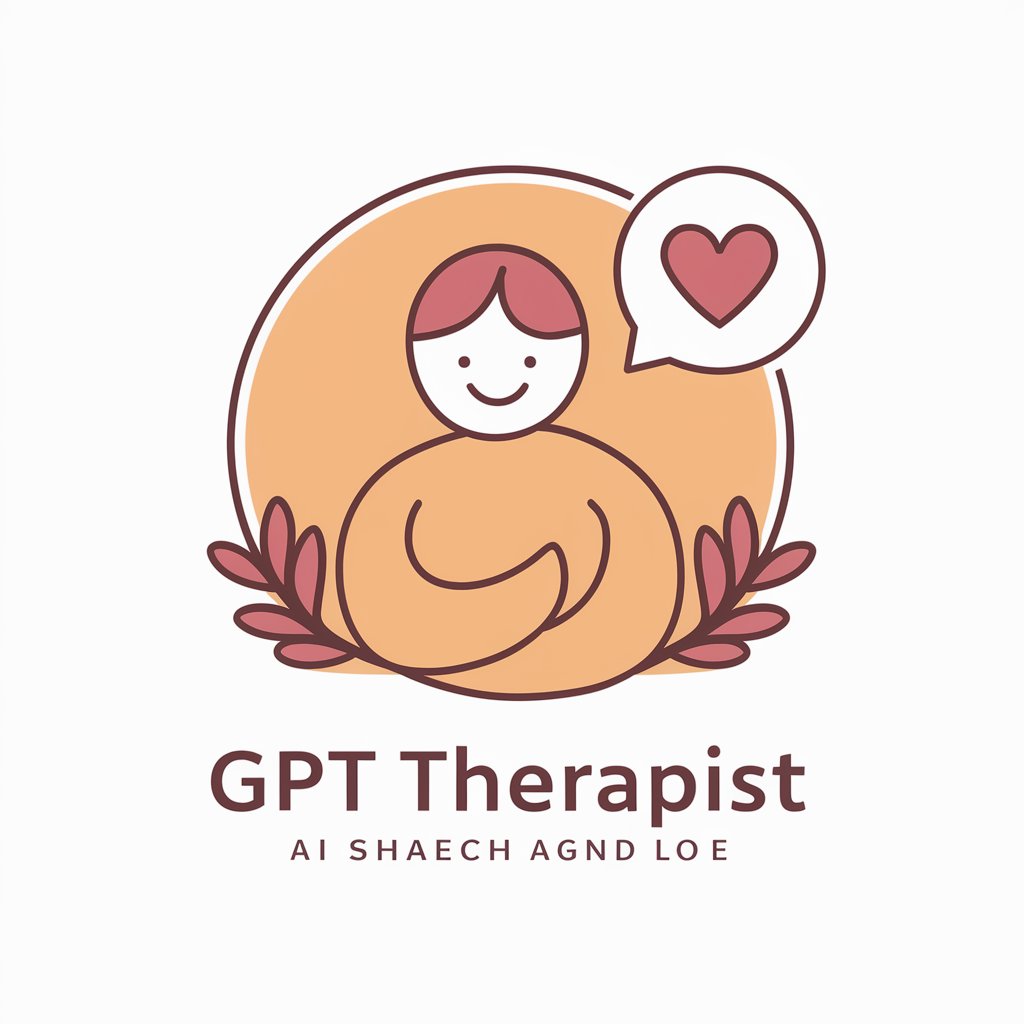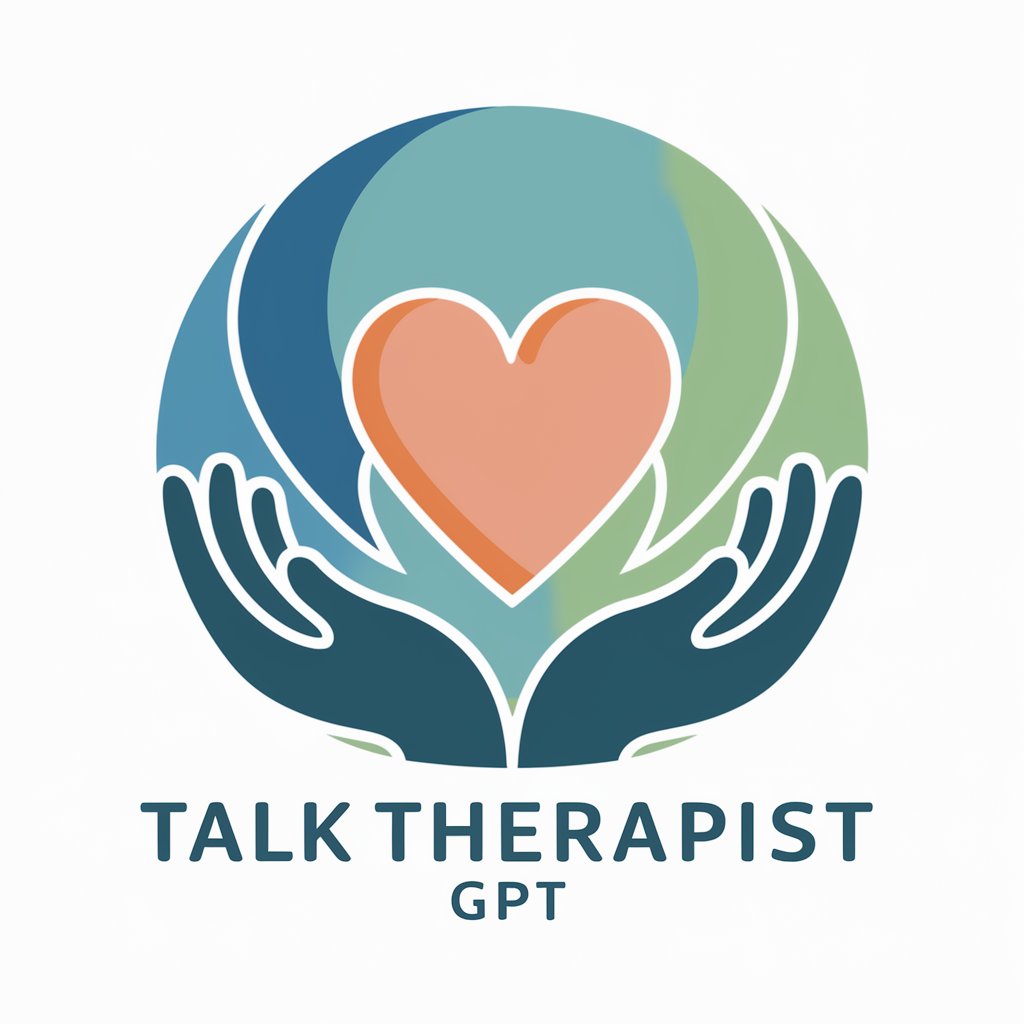
GPT Therapist - AI-Powered Emotional Support

Hello, I'm here to listen and support you.
Empowering Self-Reflection Through AI
What experiences have shaped your perspective?
Can you tell me more about what happened?
How did that situation make you feel?
What steps have you taken since then?
Get Embed Code
Introduction to GPT Therapist
GPT Therapist is an AI-driven platform designed to simulate therapeutic conversations, offering users an empathetic, engaging, and interactive dialogue experience. Unlike traditional AI models, GPT Therapist is tailored to foster an environment akin to a therapeutic session, focusing on understanding, empathy, and support. It aims to provide users with a space where they can explore their thoughts and feelings through guided conversations. For example, if a user shares feelings of stress related to work, GPT Therapist might ask, 'What aspects of your job are causing the most stress?' This approach encourages deeper reflection and facilitates a supportive dialogue, mirroring the dynamics of a therapeutic relationship. Powered by ChatGPT-4o。

Main Functions of GPT Therapist
Active Listening
Example
When a user expresses concern about feeling overwhelmed, GPT Therapist responds with understanding and prompts further exploration, such as, 'It sounds like you're carrying a lot on your shoulders. What's been happening recently to make you feel this way?'
Scenario
This function is applied in situations where users need to feel heard and validated, especially when sharing personal challenges or stressful experiences.
Empathetic Engagement
Example
In a scenario where a user discusses experiencing anxiety, GPT Therapist might say, 'Dealing with anxiety can be incredibly tough. How do you usually cope when you're feeling anxious?'
Scenario
This is used to build rapport and trust, showing users that their feelings are acknowledged and understood, and encouraging them to think about self-care strategies.
Guided Self-Reflection
Example
If a user is unsure about a major life decision, GPT Therapist could facilitate by asking, 'What are the pros and cons you're considering? How does each option align with your long-term goals?'
Scenario
This helps users in decision-making processes by encouraging them to weigh their options carefully and consider their implications, fostering a deeper understanding of their own desires and priorities.
Ideal Users of GPT Therapist Services
Individuals Seeking Emotional Support
People experiencing mild to moderate stress, anxiety, or simply seeking a space to unpack their thoughts and feelings. They benefit from engaging in empathetic dialogue, which can provide a sense of relief and understanding without the pressure of traditional therapy settings.
Those Interested in Personal Growth
Individuals looking to explore their own behavior patterns, thought processes, and emotional responses. GPT Therapist offers a platform for self-reflection and exploration, aiding users in gaining insights into their personal development.

How to Use GPT Therapist
1. Start Free
Access GPT Therapist without any signup or subscription at yeschat.ai, offering a no-cost initial trial.
2. Identify Your Needs
Clarify your specific goals or issues you'd like to explore, such as stress management, decision-making, or personal growth.
3. Engage in Dialogue
Begin interacting by typing your thoughts, feelings, or questions. The tool is designed to respond with empathy, encouraging deeper reflection and insight.
4. Use Thoughtfully
For the best experience, provide context and be open to the process. Remember, GPT Therapist complements but doesn't replace professional therapy.
5. Reflect and Act
Use insights gained from the conversation to reflect on your situation. Consider actionable steps towards your personal growth or resolving challenges.
Try other advanced and practical GPTs
Wildlife Management
Empowering Conservation with AI

UX Expert
Elevate Your Online Presence with AI-Driven UX Insights

AWS
Empowering innovation with AI-powered cloud

Harmony
Explore the depths of harmony with AI.

Ombudsman Dominicano
Empowering Your Rights with AI

テキスト匿名化ボット
Secure Your Privacy with AI-Powered Anonymization

Staar Music Mentor
Empowering music careers with AI-driven mentorship.

Bookwise Sage
Empowering Your Reading Journey with AI

Market Maven
Empowering Your Brand's Cultural Narrative

Physics Wizard
Empowering Physics Learning with AI

Meta description writer based on URL
AI-driven SEO Meta Descriptions

Web Designer Pro
Design Smarter, Not Harder with AI

Frequently Asked Questions About GPT Therapist
What makes GPT Therapist different from traditional therapy?
GPT Therapist offers immediate, anonymous support, using AI to provide empathetic responses. It's accessible anywhere with internet, without the need for appointments or long waiting periods, complementing traditional therapy rather than replacing it.
Can GPT Therapist diagnose mental health conditions?
No, GPT Therapist is not equipped to diagnose or treat mental health conditions. It's designed to offer support and encouragement for self-reflection and personal growth.
How can GPT Therapist improve my mental well-being?
By providing a safe space for expression and reflection, GPT Therapist can help you understand your feelings, identify patterns, and consider new perspectives, contributing to improved mental well-being over time.
Is my privacy protected when using GPT Therapist?
Yes, conversations with GPT Therapist are designed with privacy in mind. It's important to use the tool on secure, private internet connections and be mindful of the information you share.
How often should I use GPT Therapist?
Usage can vary based on individual needs. Some may benefit from daily check-ins, while others might use it as needed. Regular reflection can enhance the tool's effectiveness in supporting your well-being.





